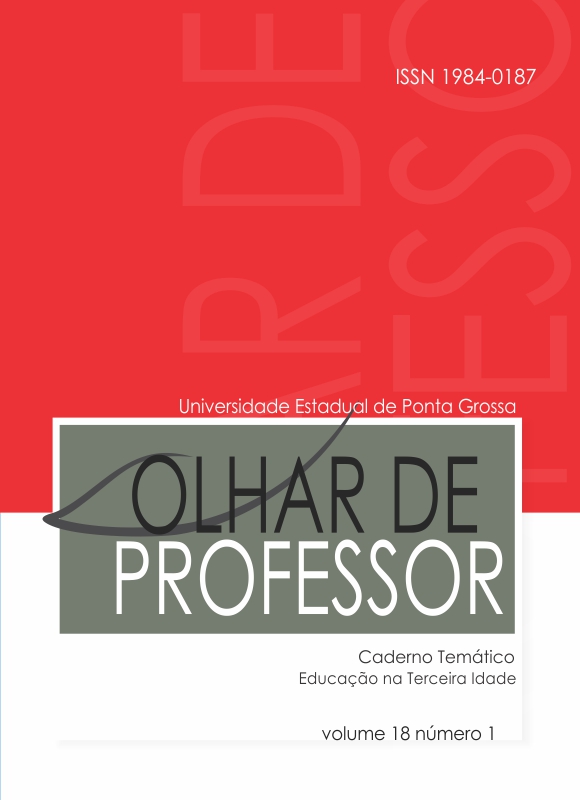EDUCACIÓN CON ADULTOS MAYORES: MOTIVACIONES Y BENEFICIOS PERCIBIDOS
Conteúdo do artigo principal
Resumo
El envejecimiento poblacional y la mejora en las condiciones de salud de los adultos mayores han traído como resultado nuevas demandas a las cuales dar respuesta. En este escenario, la educación ha tomado un rol protagónico para estos mayores activos y motivados para aprender y mejorar. Desde la Psicología Positiva y el enfoque del Curso de la Vida, se fortalece la idea del desarrollo y la obtención de ganancias en esta etapa de la vida, tradicionalmente asociada a pérdidas y deterioro. Desde su origen, las propuestas educativas para adultos mayores se han ampliado y diversificado en los últimos 40 años. En este sentido, el presente estudio propone por una parte, indagar sobre los beneficios percibidos frente a la participación en tales propuestas (n=120) y, por otra, indagar los motivos por los que los adultos mayores eligen participar (n=60) o no de las mismas (n=30). Se espera que los resultados obtenidos constituyan un aporte en el estudio de una temática reciente, considerada fundamental para el logro de un envejecimiento positivo.
Downloads
Detalhes do artigo
Autores que publicam nesta revista concordam com os seguintes termos:
a) Os autores mantêm os direitos autorais e concedem à revista o direito de primeira publicação, com o trabalho simultaneamente licenciado sob a Creative Commons Attribution License Atribuição 4.0 Internacional (CC BY 4.0) que permite o compartilhamento do trabalho com reconhecimento da sua autoria e publicação inicial nesta revista.
b) Os autores são autorizados a assinarem contratos adicionais, separadamente, para distribuição não exclusiva da versão publicada nesta revista (por exemplo, em repositórios institucionais ou capítulos de livros), com reconhecimento da sua autoria e publicação inicial nesta revista).
c) Os autores são estimulados a publicar e distribuir a versão onlline do artigo (por exemplo, em repositórios institucionais ou em sua página pessoal), considerando que isso pode gerar alterações produtivas, bem como aumentar o impacto e as citações do artigo publicado.
d) Esta revista proporciona acesso público a todo o seu conteúdo, uma vez que isso permite uma maior visibilidade e alcance dos artigos e resenhas publicados. Para maiores informações sobre esta abordagem, visite Public Knowledge Project, projeto que desenvolveu este sistema para melhorar a qualidade acadêmica e pública da pesquisa, distribuindo o OJS assim como outros softwares de apoio ao sistema de publicação de acesso público a fontes acadêmicas.
e) Os nomes e endereços de e-mail neste site serão usados exclusivamente para os propósitos da revista, não estando disponíveis para outros fins.
______________

Este obra está licenciado com uma Licença Creative Commons Atribuição 4.0 Internacional.





